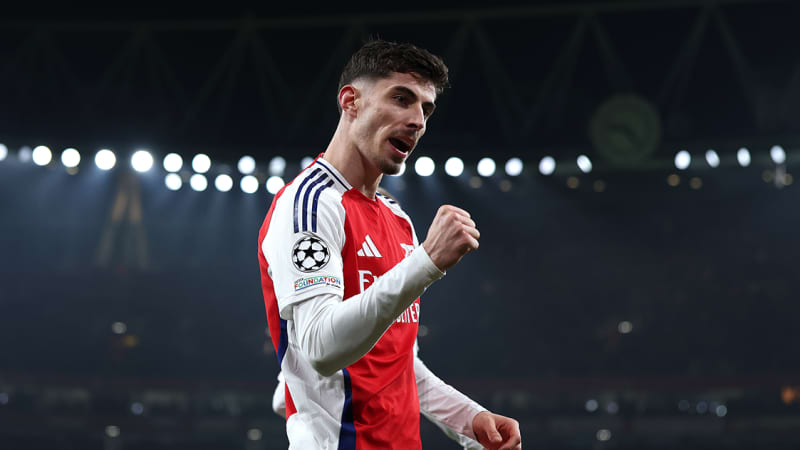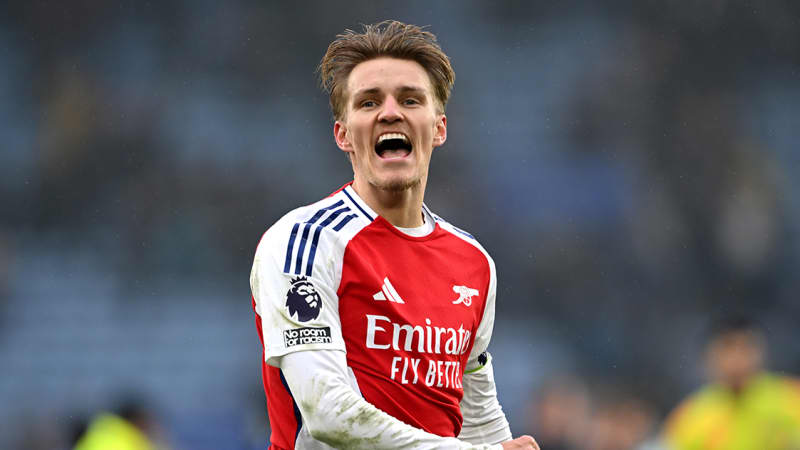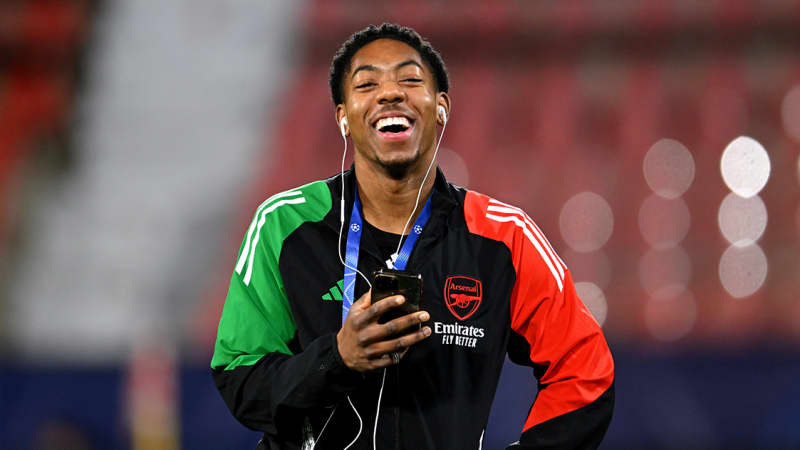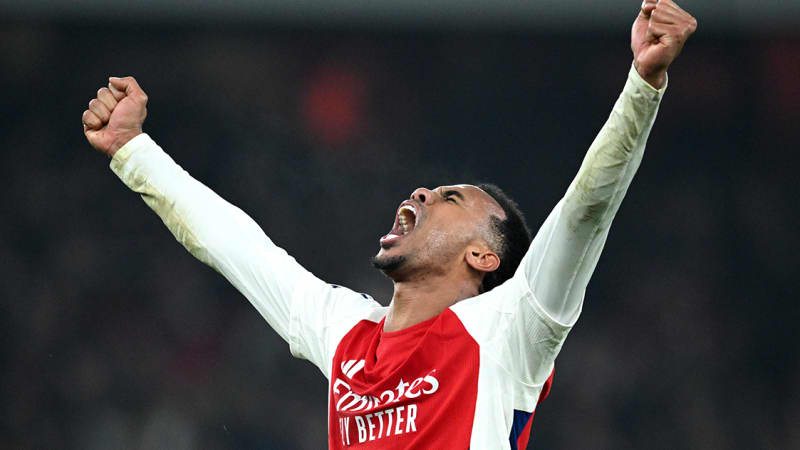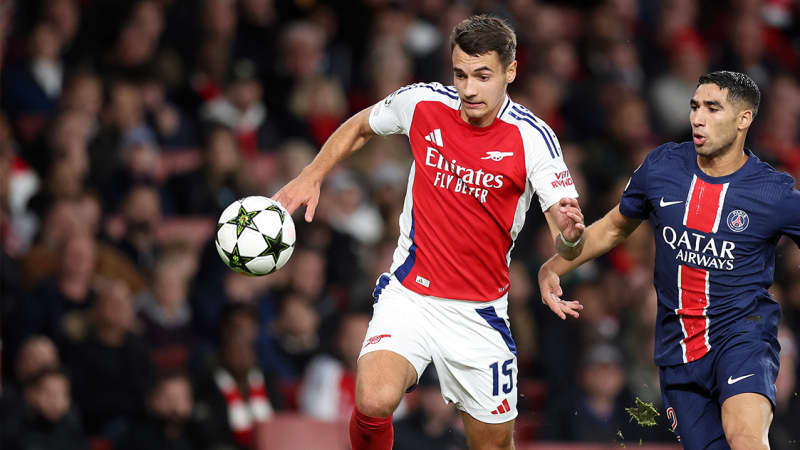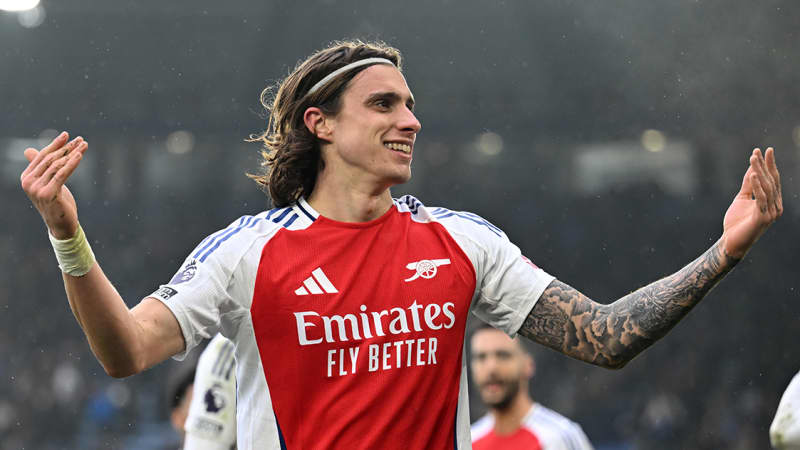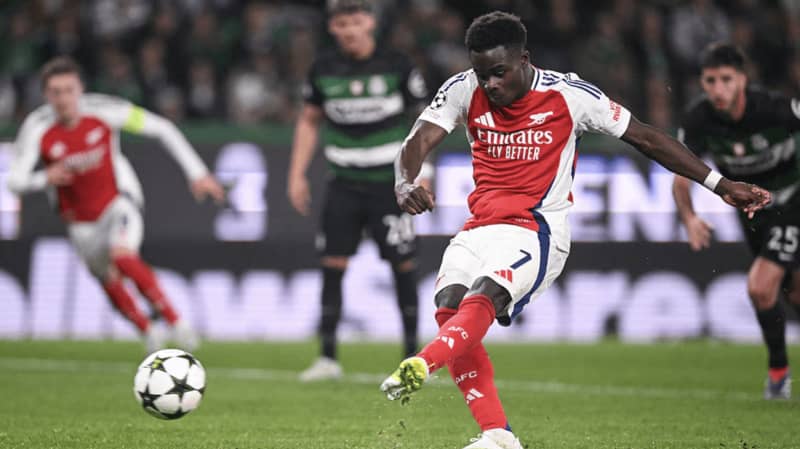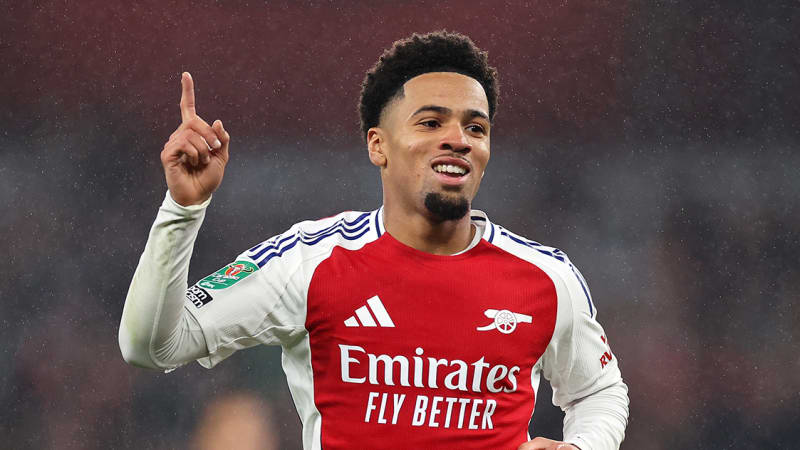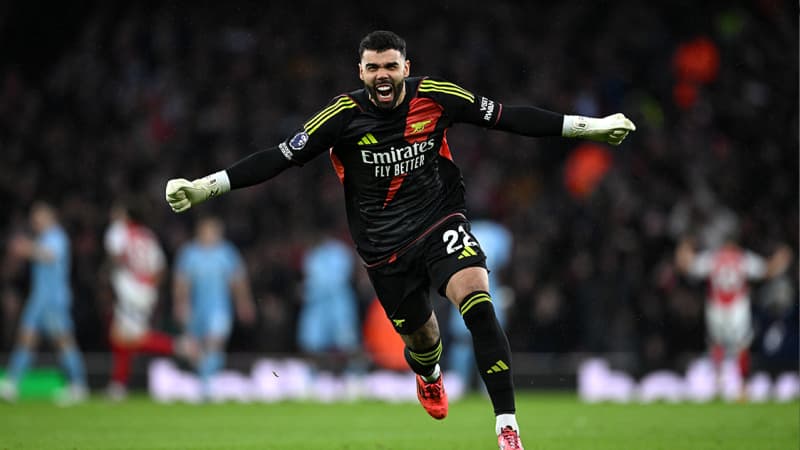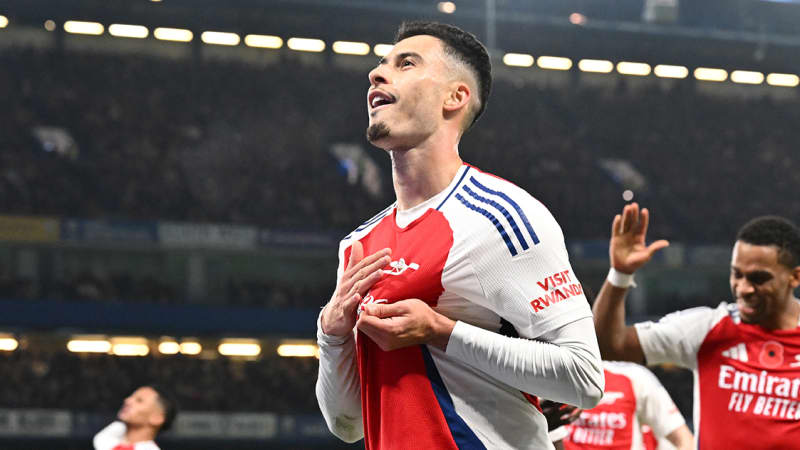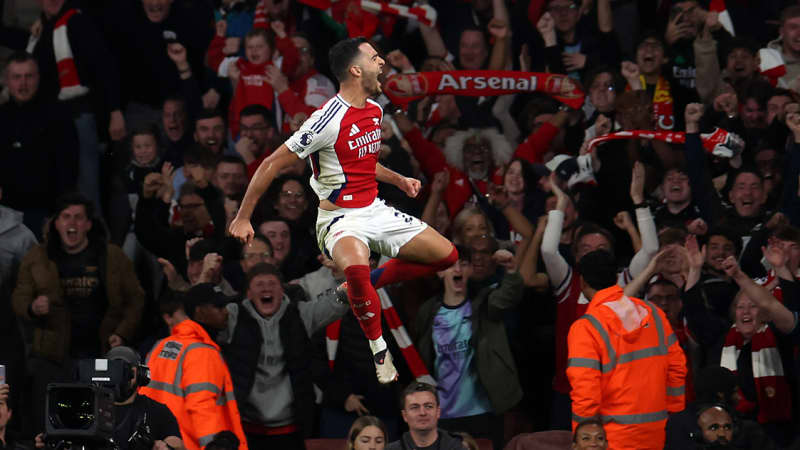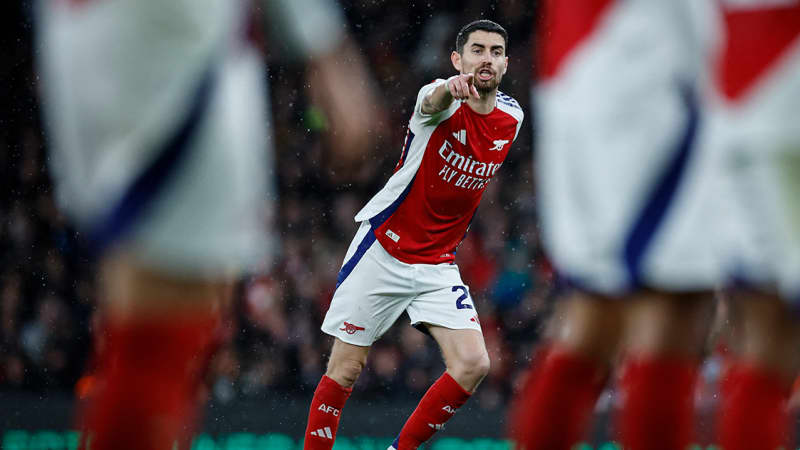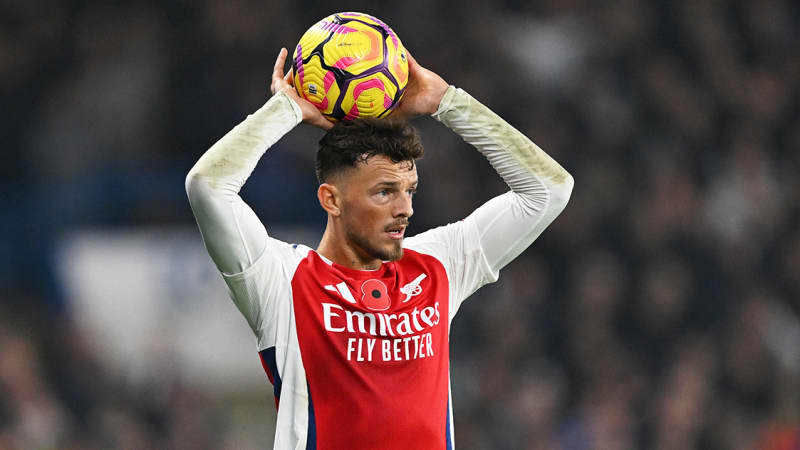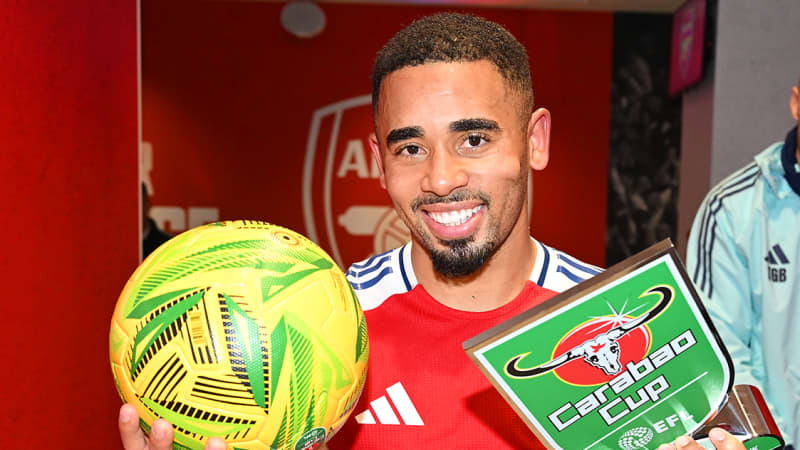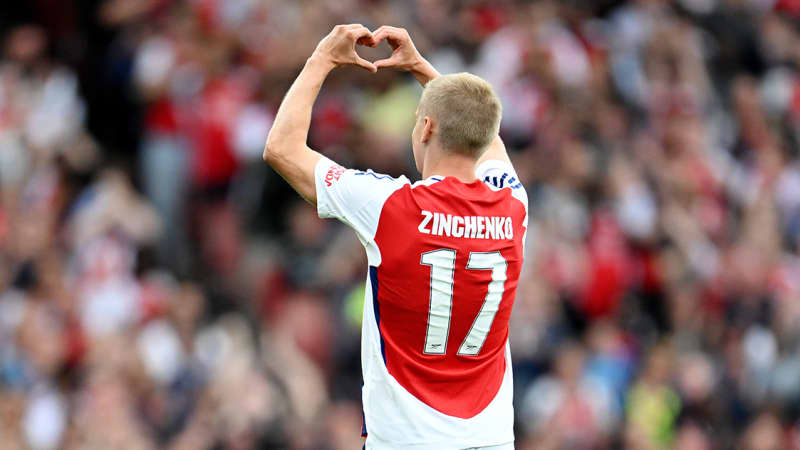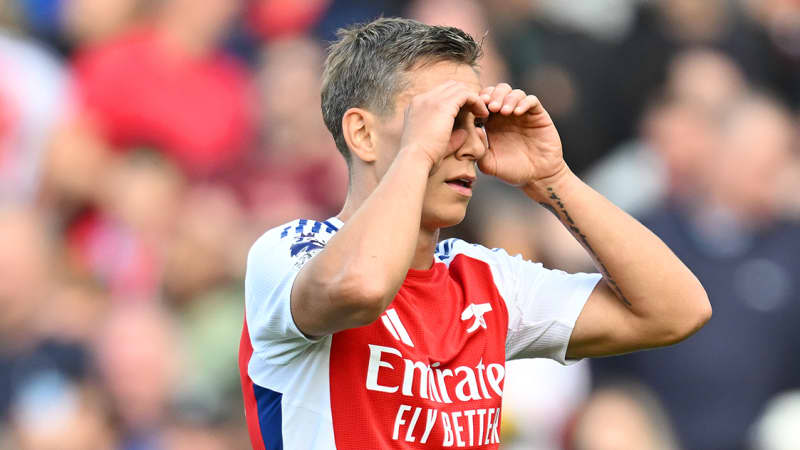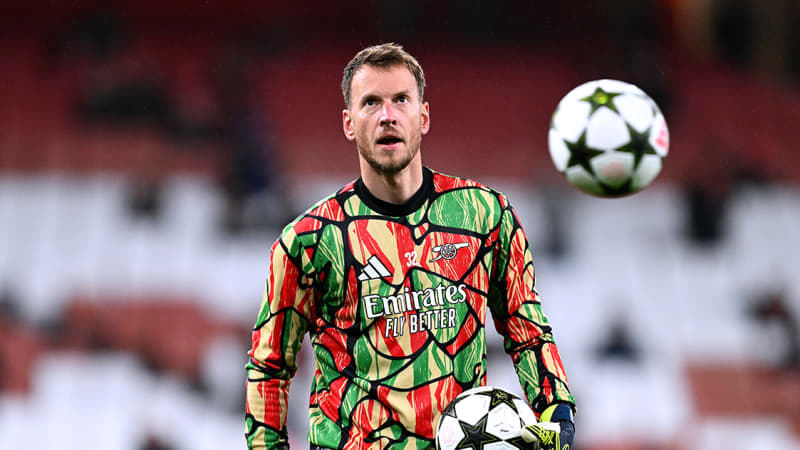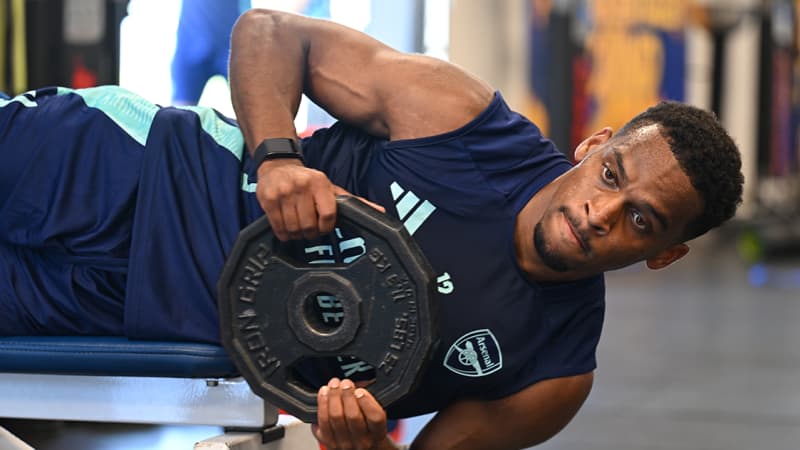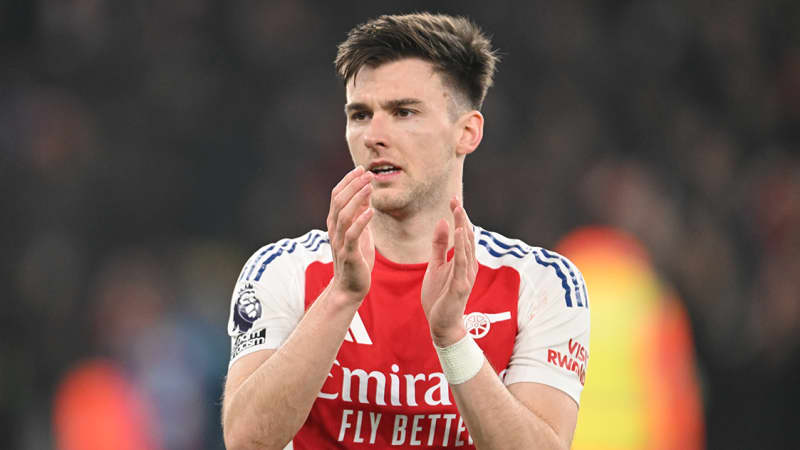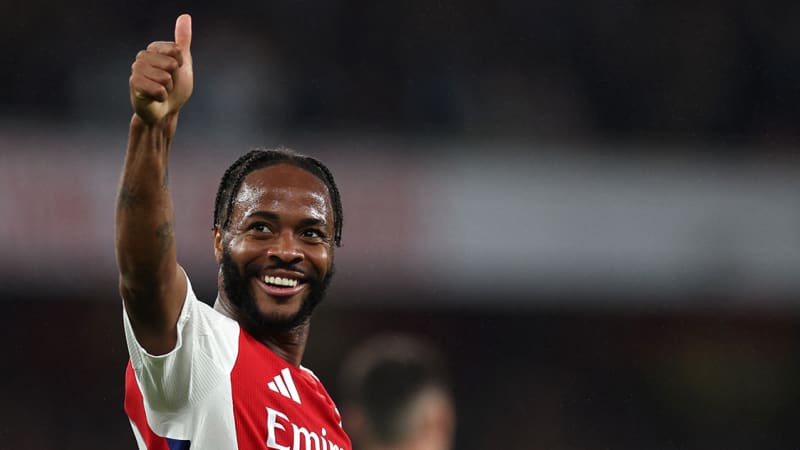When Saliba was a "scary" striker
We find out how William’s upbringing as a forward helped form the dominant defender we see today
By Josh James

William Saliba has steadily carved out a reputation as one of the most accomplished all-round central defenders in the modern game. Still only 24, he has barely missed a game since making his first-team debut for us on the opening day of the 2022/23 season.
He has been voted into the PFA Premier League Team of the Year in each of his two seasons so far, and has yet again been the bedrock of our defence this term. He has missed just two league games, and has been part of the meanest defence in the country, while contributing heavily to the second-best defensive record in the Champions League.
But there was a lot of hard work that went into William’s formative years, before he could emerge as the world-class centre-back we see today. And some of that work was done while he was an Arsenal player officially, but sent out on three different loan spells in France.
Indeed it was more than three years after signing until he made his debut for us – away to Crystal Palace in August 2002. But looking back, William says that all of those experiences have contributed to the development of his career so far.


“My first professional year at St Etienne was the most important in my career yet, because at the end of that year I signed for Arsenal,” the France international begins. “Then when I went out on loan, back to France at Marseille, I think that was a very good year for me.
“That’s when I came back to Arsenal and started to play in the Premier League. So that year in Marseille led me to coming back and playing here at Arsenal, it was very important.”
William was loaned back to St Etienne for the first year after signing for us, then had six months with Nice the following campaign, before spending the 2021/22 campaign with Marseille.
It was there he was named Ligue 1 Young Player of the Season and voted into the Team of the Year. So what does he think changed during those successful loan spells in his home country to propel his career forward?
“I didn’t change anything specific in my game, in my mind or anything, but it’s about adapting,” he says. “I hadn’t played even one game before going out on loan, but sometimes you have to adapt. You have to work harder, never give up and that’s what I did.
"In the end I came back and started to play a lot of games. I always had belief in what I could do, and I felt ready to play. You have to always be ready, so I was just waiting for my time. And when the coach gave me an opportunity to play, I responded well.”
"I was just waiting for my time. And when the coach gave me an opportunity to play, I responded well"


But it was even earlier in his career than that, William says, when he learned the value of hard work. In fact he says it was the very first lesson he had in football.
“What was the first lesson that I got? If you want to be a top player, you have to work hard. Harder than everyone else,” William reveals, reflecting on his time at his hometown club AS Bondy, in north-east Paris.
“Everyone in my first club, every coach that I had there, they all taught me that.” And William admits with a smile that it was a lesson he needed teaching: “Yes, because when I was young, I was a bit lazy.
“I was lazy to run. I would just do two or three sprints in the game, then I would stand there and put my hands on my hips like this!’ he laughs. “So I was lazy, but then I realised that if you want to be a top player, you have to run. You have to run a lot.”
William was a striker during those “lazy days”. He admits he was the kind of forward that would blame his midfielders for not finding him with the right passes, rather than make the runs.
“But when you are young that’s OK,” he adds with a laugh. “But when you get to 12 or 13 years old, you realise you need to step up a bit more. There was one coach at this stage who told me to be more demanding with myself. So at this stage, I realised that I have to do more. Even outside of the pitch, I have to run more in training and throughout the week.”


Even back then though, his natural ability stood out – albeit as a striker. “I was good!” he grins. “I was dangerous, I scored goals. It’s more that my body language was no good, and I realise that now – but I was scary. I scored a lot of goals!”
William didn’t start playing in defence until he was 14, by which time he had left Bondy. But it’s perhaps not surprising he trained as a forward while at Bondy, considering Kylian Mbappe was also there at the time, and one of William’s coaches was Kylian’s dad.
“I didn’t play with Mbappe,” William says. “He was a different age group and back then we weren’t allowed to play up above your age. It’s different now.
“When I was 11, Kylian’s dad was my coach for one year. He took the under-11s and he was a very good coach. He never hid anything from you with his words, he was always honest and I liked that. So I’m sure he told me not to be lazy!
“Even at that age, if you are not doing something well, you need to be told that if you want to improve and sign for a club one day. I needed that as well.”
"I was dangerous, I scored goals. It’s more that my body language was no good, but I was scary!"


William obviously heeded those lessons, and says he loves coming to training every day now, and especially likes being part of a dressing room with such a great team spirit.
“Sometimes training is hard, it’s tiring too, especially when we play twice a week, but when we are winning a lot of games you really like coming to training.
“The atmosphere is so good here, even more when we are winning, but I love being here every day. I love the small-sided games in training – it’s very competitive. If you lose those, your day is ruined!”
He says he is especially close with fellow defenders Jurrien Timber and big Gabi, but “gets on very well with everybody”. And does he like to remind them in training every now and then that he used to be a striker?
“Oh, they know!” he says laughing. “For sure sometimes I show them some stuff in training. And I enjoyed the game against Brentford recently,” he says, referencing the game where he consistently brought the ball forward out of defence earlier this month. “It was good, no? But I was tired afterwards,” he laughs.
So looking further ahead, what does the future hold for William? He only turned 24 last month, but has he thought at all about what he might do after his playing days?
“No, to be honest I don’t know yet. I haven’t thought about it. But I will have to soon, because sometimes you think something is not close, but it can all happen so quickly. “Whatever it is though, I think I would like to stay in football, but I’m not sure what exactly.”
He’s already shown in his young career to date the ability to be adaptable, learn new roles and take strength from setbacks. So whatever he decides in future, there’s a fair chance he will master it in no time


More from our dressing room









